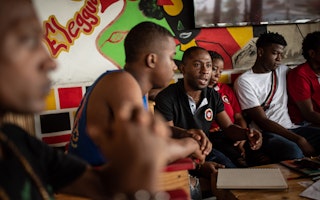Brazil Can Fight the Zika Virus with Better Public Policy
By Elisa Slattery

Crises, public health or otherwise, throw into sharp relief the fundamental inequalities that surround us. Race and ethnicity, income, gender—each play a part in determining the place we begin in the world, and low-income women of color, who exist at the intersection of all three factors, often face the greatest challenges in life.
Debora Diniz, a law professor at the University of Brasília and the founder of Anis—Institute of Bioethics, understands this. That’s why, when a mosquito-borne virus linked to neurological defects in infants broke out in her country, she focused her attention on trying to redress some of the disparate impacts of the disease.
Media coverage of the epidemic has focused primarily on the possibility that pregnant women diagnosed with Zika may give birth to children with microcephaly—a condition in which babies are born with unusually small heads and underdeveloped brains—and the possibility that restrictive abortion laws may prohibit women from ending their pregnancies. Such laws are indeed part of the landscape of inequality in societies where women are unable to access the reproductive health information and services they need. In this case, that reality was compounded by the government’s initial response: advising women not to get pregnant.
Diniz had a better idea: she asked the government to devise responsive policy solutions. In other words, rather than just work harder to control the mosquito population and develop a vaccine, Brazil should also support women living with acute uncertainty about their pregnancies in situations of economic and social precarity. This includes providing comprehensive information and reproductive health care for all women—including sexual education, contraceptives, prenatal care, and the option of safe and legal abortion—and strengthening a fragile social services system to support children and families affected by the epidemic.
Zika is not the only crisis Brazil is facing; the country is also roiling with social protests in response to profound economic and political upheaval. If the public response to these challenges is not handled appropriately, many already marginalized people will fall even further behind.
The Open Society Foundations work to advance equal citizenship for women by supporting partners who promote economic justice, strengthen feminist movements and leadership, and advance sexual and reproductive rights. These goals are interconnected. In order for women to take their place as full citizens, they must have control over their own bodies, and a level of economic security that enables them to participate in the collective life of society and be able to advocate for change.
Anis—Institute of Bioethics is a grantee of the Open Society Foundations. At Open Society is a video series highlighting the people and ideas that are inspiring our work—and changing the world.
Until November 2021, Elisa Slattery was a senior program officer for the Open Society Women’s Rights Program.


